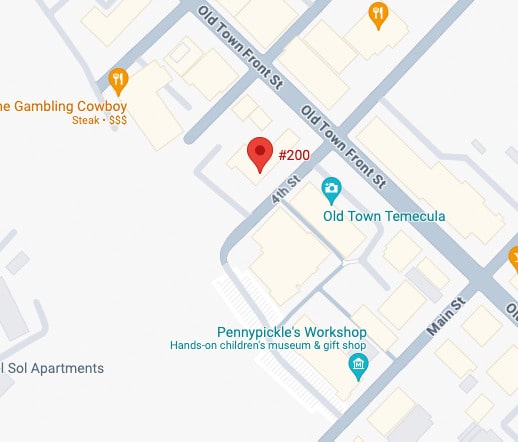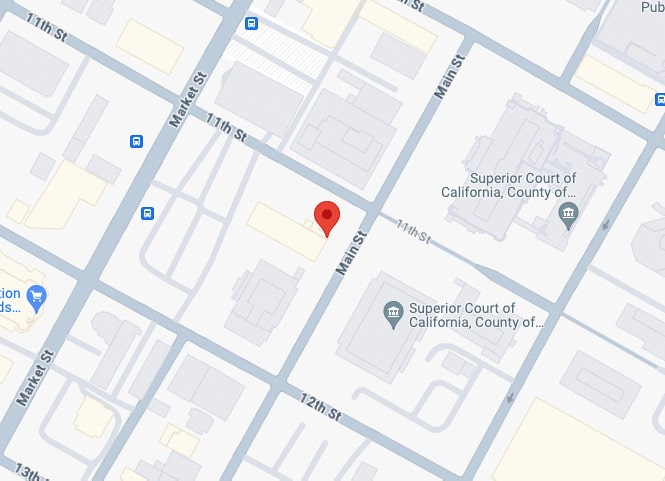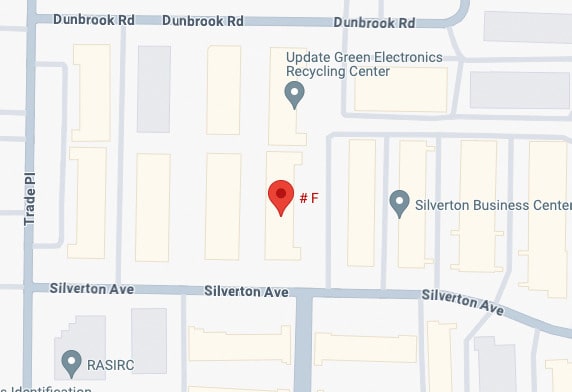Following your arrest and booking, you will immediately appear in court for a bail hearing. Judges hold bail hearings to determine a defendant's eligibility, set the amount, and determine the procedures for posting bail to secure a defendant's release pending trial. Bail hearing outcomes are entirely up to the judge's discretion. Judges consider factors like your criminal past, the seriousness of the offense, and if you have deep ties to your community. It is crucial to comprehend when and how bail hearings occur to increase the likelihood of a successful conclusion. For example, if the judge refuses to release you on bail, you can seek the assistance of a lawyer to fight for your release. You can fight for a bail reduction or a release on personal recognizance if the court sets your bond too high. Contact a trustworthy bail bond company for assistance with posting bail and further information regarding bail hearings.
What Makes Bail Important
A person is not always guilty of breaking the law just because they face an arrest. Arrests pave the way for criminal trials, which result in a verdict of guilt or innocence for the defendant. Therefore, even if the prosecutor files a criminal complaint against you, the fact that the police have made an arrest does not prove you are guilty.
According to California law, those who face criminal accusations have time to defend themselves so that judges can resolve their cases fairly. You have time to gather evidence and retain a criminal defense lawyer as you prepare for trial. But it is not fair to keep you in jail until the conclusion of your case.
To obtain a pretrial release, defendants in California can legally post bail. You must post bail with the court to guarantee your appearance at court proceedings. The seriousness of your charges determines the sum. For example, an infraction will likely attract a less bond than a misdemeanor or felony. Because a felony is a more serious offense, the bail is typically higher.
Depending on the facts of your case, the court could raise or lower your bond. For example, the judge can raise your bond if you are a repeat offender.
Even though you face criminal accusations, bail enables you to return to your regular life. Again, until a jury finds you guilty, you are not guilty. Therefore, even if all other evidence points to the conclusion that you committed a crime, you are still not guilty and entitled to a pretrial release. Just because you are facing criminal accusations does not give the police the right to prevent you from going about your daily business.
However, the judge can reject your bail request if they believe you would run away if they free you on bond. Additionally, if the facts of your case suggest that you pose a threat to your community or yourself, the judge can deny you bail.
Bail enables you to prepare for court. There is not much you can do to prepare for trial when you are behind bars. You can gather information, hire a lawyer, and mentally prepare for court when free. For example, you could return to the murder scene and obtain tangible proof. With your lawyer's assistance, you can speak with and interview eyewitnesses. You can obtain phone records and other digital exchanges if they can support your case.
Bail also enables you to rejoin your family or place of employment. Because you are under criminal investigation, your life does not have to stop or pause. You should go back to your regular life following an arrest unless the judge has good reason to hold you in police custody.
Your Bail Posting Options in California
Californian authorities will probably issue you bail after your arrest if you are not a flight risk or a menace to your community. The judge will explain to you how they expect you to make bail in that situation.
Cash bail is typically your first choice, wherein you pay the full amount necessary for the court to process your pretrial release. If you have the required sum for bail, you can contact a relative or friend to facilitate the bail release process. Once you have paid the whole sum, you will be free. And regardless of how your case turns out, you will receive the full refund after the case ends.
Property bonds would be your alternative. This is the process through which the court consents to keep an asset that is valuable and has a higher value than your bail until the conclusion of your case. That property remains in the court's custody and will only be returned if you comply with all bail requirements.
You could also use a bond dealer's assistance to post bail and obtain your release. The bond agent will provide the court with a surety bond in exchange for their pledge to cover the balance of your bail if you fail to adhere to all of its terms.
Bond dealers are independent businesses that offer assistance to defendants and their families who cannot post bail. They are prompt, efficient, and trustworthy. Once you use their services, a representative will be assigned to your case and quickly guide you through the bail process. If you are arrested in California, surety bonds are the quickest route to obtaining a pretrial release.
The cost of bail bond services is often a modest percentage of the bail amount. Certain businesses charge less. Only the 10% cost, the premium, or the fee for the bail bond services are required after you engage with a bond dealer. Depending on your financial situation and the bond dealer's agreement, you could pay the entire sum at once or in installments.
Some bond brokers will only assist you if you can offer a co-signer and collateral to cover the cost of the bail services. A friend or family member who signs the bail bonds on your behalf could be your co-signer. If you fail to show up and the court forfeits your bail, the co-signer agrees to be accountable. Anything of value that the bond agency can hold onto until the end of your case will serve as collateral for bail services. If you fail to show up and the court forfeits your bail, the bond agent has the right to keep and sell the collateral.
How Judges Set Bail
The amount of bail for different felonies and misdemeanors is determined by the type of offense committed. In California, a bail schedule specifies the amount of bail for each violation in each county. Depending on the specifics of your crime, the police can promptly inform you of the bond amount to post after your arrest. But to find out the precise amount and method of payment required for a pretrial release, you must show up before a judge for a bail hearing.
It is now prohibited for the police to hold you in custody following an arrest without a bail hearing because all crimes have a defined bond sum. Some defendants can be released on their own recognizance. It indicates they are eligible for release without posting bail since the court has faith in their ability to appear at all scheduled court dates. However, defendants facing charges for major offenses, including violence, can still be detained without bail. As a result, their community is kept safe, and they cannot flee.
The judge determines your exact bail amount during the bail hearing. The court considers the facts of your case, the bail schedule for your county, and other factors before deciding on the final sum. You could pay more or less than what is specified in the bail schedule. Your bond can be set high, for example, if you have weak ties to your community and are likely to flee if released on bail. The judge does this to deter defendants likely to escape after posting bail. However, if you face charges for a minor misdemeanor, the judge can free you on your own recognizance or impose a lower bail amount than what is on the bail schedule.
Conditions for Bail Release
Once the judge releases you on bond, they will impose bail conditions to follow throughout the bail period. Serious ramifications, including new criminal charges, result from violating bail restrictions. The most typical of these conditions are:
- The police must release you to a member of your family, close friends, significant other, or a community member, who must promise to accompany you to all court appearances
- Throughout the bail period, you must contact a designated agency via text, phone, and online check-ins
- You will be subject to severe travel restrictions, like a judge's order forbidding you from leaving the state or requiring you to turn up your travel documents
- You can be subject to severe driving prohibitions or limitations
- You can be subject to a stay-away order
- The judge can mandate that you participate in and complete AA/NA meetings or other comparable support organizations in your neighborhood.
- A directive from the police requesting that you turn over any weapons you could have
- An order mandating the installation of IID systems in every car you own
- A court-designated agency can ask you to check in personally
- A directive to enter and complete a program for alcohol or drug abuse therapy
- A mandate to receive mental health therapy
- You can be required to submit to random drug and alcohol testing.
- A directive to participate in a residential treatment program
- Before the court decides on your case, you could be required to leave your home for another place of residence.
- A directive to wear a GPS or electronic monitoring device
- Order for home detention
Bail restrictions can occasionally be overly harsh and challenging. You can discuss it with your lawyer. Experienced criminal defense lawyers have the critical thinking skills to stand out for their clients when it seems unfair. Your attorney can negotiate better bail terms. They can even utilize the terms of the bail to bargain for a lower bail amount or a release on personal recognizance.
However, if you accept the terms, you must not break any of them. The judge will issue a warrant for your immediate arrest and arraignment if you do. The court will decide what happens to you after this hearing after considering all relevant circumstances surrounding the offense. For example, if you disobey a court order, you could face charges for contempt of court, which carries a minimum five-day jail sentence and a $1,000 court fee.
Anywhere you could be at home, work, school, or on the streets, the police will pursue you once they have a warrant for your re-arrest. Keep in mind how humiliating and upsetting an arrest can be. Once you violate your bail, the judge can refuse to grant you a pretrial release. It implies that you could be kept in custody until the resolution of your case.
What Happens in Bail Hearings
The judge will schedule a bail hearing once the prosecution files criminal charges against you. The judge determines the hearing's time and date. You must do this a few hours after your arrest, so keep that in mind. In this manner, the police will break the law by holding you in custody longer than necessary before the outcome of your case.
The judge first decides whether you qualify for bail. All defendants are eligible for bail, although the court can refuse it in certain situations. For example, if you pose a risk to others and yourself or have a history of fleeing after bail release. If circumstances in your case could lead the judge to reject your bail, you can ask for bail during the hearing. If you have legal representation, your lawyer will persuade the judge that you are eager and prepared to go to trial.
Second, the judge decides how much bail you must post and how much it will cost. Remember that, unlike the bail schedule, the amount is typically flexible. The judge could raise or lower it at will. You could also be eligible for release on your own recognizance. You can ask the court to lower or remove your bail during the hearing. Your attorney's appearance could significantly impact the outcome of this petition.
Judges have complete discretion when making bail decisions. Your bail could be set, changed, or removed at the judge's discretion. Typically, their choice is definitive. However, the court will take into account several factors, including the following:
- Your financial ability to make bail
- The seriousness of the charges — The judge will take into account any aggravating circumstances in your case, like the victim's injuries or threats, the use of weapons during the commission of the crime, and whether or not you were intoxicated or otherwise impaired.
- Your criminal record
- Your likelihood to appear in court on time after release on bond
- Public protection
However, the judge will not lower your bail below the amount listed on the bail schedule if you face charges for a serious or violent felony unless there is good cause or special circumstances. The following are not considered a good cause or exceptional circumstances:
- Making all prior appearances in court
- While out on bond, you did not commit any new crimes.
However, if fresh evidence leads to changes in the facts of your case, the judge could reconsider the ruling.
Remember that even after you post bond, the court can still decide to take you into custody if new information about your case becomes available.
Within five days of the initial hearing, you have the right to another bail review hearing if you have not paid bail and are still being held by the police. You must first give the prosecution notice of your desire to request a bond reduction if you face charges for a serious felony, a violent felony, a criminal under the list of domestic violence crimes in California, or a crime under the list of violations of protective orders. To give the prosecutor time to prepare an argument, you must submit the written notice two days after your bail hearing.
Remember that the judge has the complete ability to increase your bail as well. The prosecution will draw attention to aspects of your case or circumstance that the court might otherwise be unaware of, like prior parole or probation breach, if you ask the court for a bond reduction. The judge can set a higher bail amount than you can afford. If you cannot pay the bond amount, it does not mean that the court acted unfairly or abused its authority. You can ask a bond broker for assistance.
Find a Dependable Bail Bond Dealer Near Me
Following your arrest in Temecula, you can bargain for a pretrial release during a bond hearing. The judge will set your bond amount during this hearing and grant you bail. But with the assistance of your criminal defense lawyer, you can bargain for more favorable conditions. If your bail is still too high, you can seek the assistance of a reputable bail bond company in your area. Justice Bail Bonds professionals are constantly prepared and eager to assist defendants and families unable to afford bail. We provide prompt, dependable, cost-effective, and expert bail bond services. To find out more about us and how we can help your situation, call 951-445-4155.










